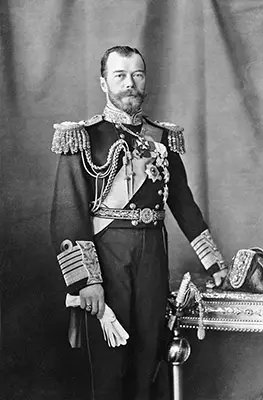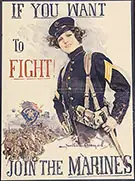Tsar Nicholas II
Tsar Nicholas II was born May 18, 1868 near the city of St. Petersburg, Russia. His given name at birth was Nickolai Aleksandrovich Romanov and was the eldest son of Alexander Alexandrovich. His father was also heir to the throne of Russia. His mother, Maria Feodorovna was from the country of Denmark. His mother was constantly doting on her children and made sure they enjoyed a loving home environment.
Young Nicholas’s education was made up of private education by way of tutors. One of his private teachers was Konstantin Pobedonostsey, member of the Russia government. Most children in Russia, or anywhere, usually did not have a government official as a personal teacher. Much of the love for history and languages that Nicholas came to have was brought about by his tutors.


Sadly, the future ruler of Russia need not seem to gain much in the way of political knowledge from his own father. The Tsar was not given to much of the formal education a future ruler would need. However, Nicholas did receive an appreciation for religion from his dad.
Nicholas married Alexandra, a member of German royalty. They would have four children, including one son, Alexis, who was born with hemophilia (a disease that was a thinning of the blood). Later in life the family would suffer a tragic end with the Bolshevik uprising.

Before he was twenty years old, Nicholas joined the Russian army. He would rise to the rank of colonel in his four years of service. His passion for the military and less of politics, made him not attend much in the way of political meetings that were important for members of the ruling class.
His father became ruler of Russia when Nicholas was thirteen years old. Then in 1894, when Nicholas was in his twenties, his father passed away of kidney failure. Young Nicholas became the new Tsar of Russia as Nicholas II. The new ruler had no love for the position however, partly because of his poor training in handling the affairs of state. In fact, he once revealed to a close friend, “…I never wanted to become one (Tsar)”.

However, personal feelings aside, Nicholas II stepped up to do what was needed. Nicholas II pushed for expansion of colonial territorial into Manchuria. After a failed war with Japan because of this push, the country endured a period of riots among her own people; including that of ‘Bloody Sunday” where citizens were shot at by the Russian army. Nicholas’s popularity was sinking and a parliament was established known as the Duma.
Although Nicholas II was a cousin of Germany’s ruler Wihelm II, the Russian ruler did not feel a close connection to Germany. In fact, when Germany joined into an alliance with Austria-Hungary and Italy in case of war, Nicholas believed any future conflict would make Germany an enemy. That belief rang true when WWI began and Russia came to the aid of France as hostilities began.

Russia’s involvement was unsettled at best as the war commence in Europe. The internal industry complex of Russia was facing constant worker unrest. In fact, much of the nation was on strike as 1914 began. But as the war was growing, the need for materials allowed the unrest to settle down. This was of benefit to Nicholas II as he was able to supply the needs of his armies to the west.
In 1915, Tsar Nicholas II took personal control of the military as Supreme Commander. The failure of the army to see much success on the Eastern front of Europe made him decide to take personal control. However, his involvement did not prove to be much improved for military success. As failure after failure continued, the Tsar was seen as the reason and his popularity declined once again.

By 1916, unrest once again was pervasive in Russia and the people were out to make change in the government. As unrest grew, Nicholas II was forced to abdicate his throne and his family was sent into exile. Although Nicholas and family were given an invitation to move to England by a family member, the English monarchy changed its mind.
In 1918, Nicholas II and his family were taken by revolutionaries and executed. A tragic and final end to the Russian monarchy.



